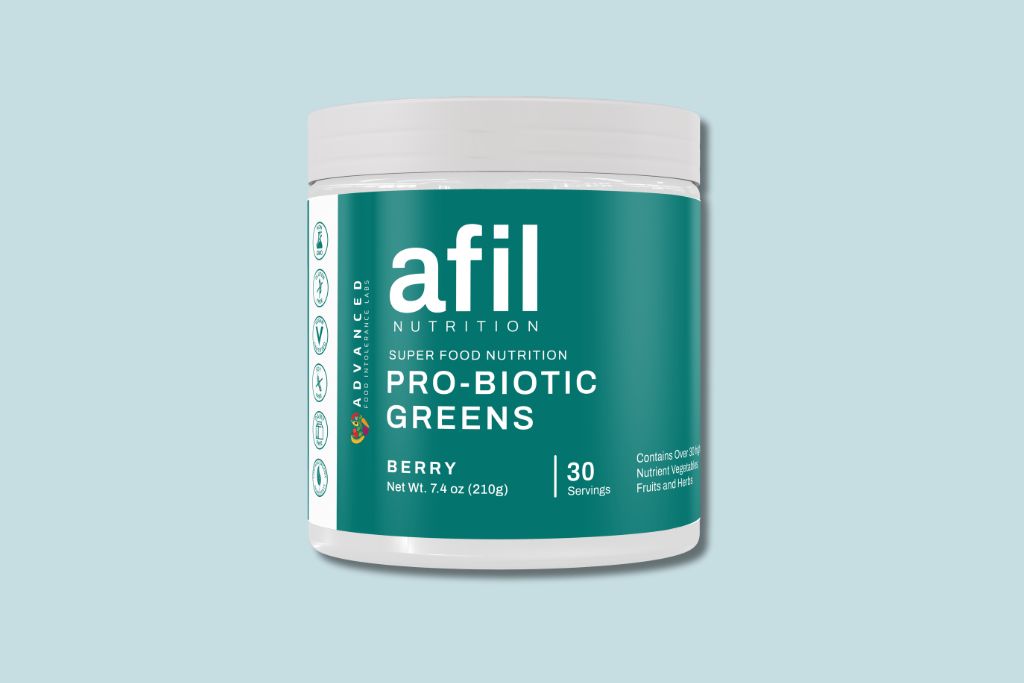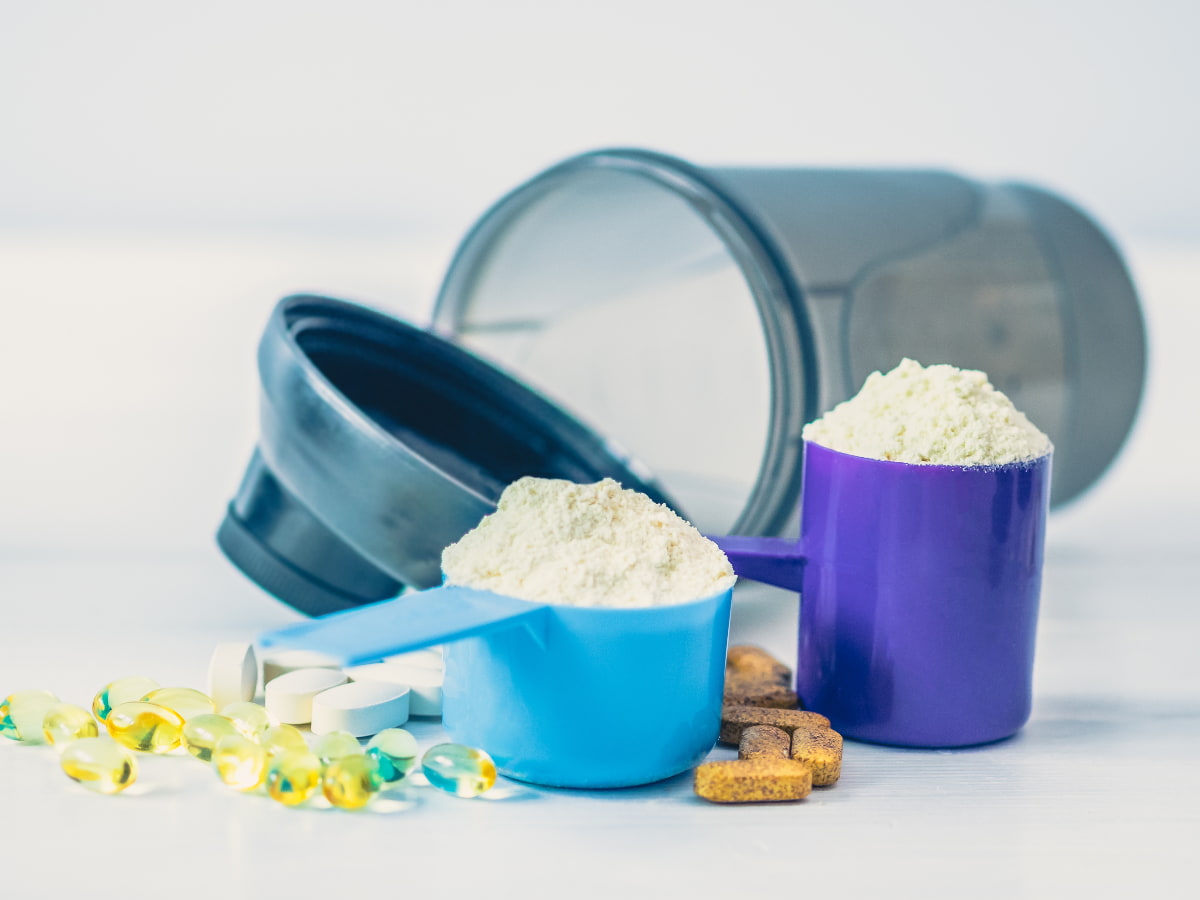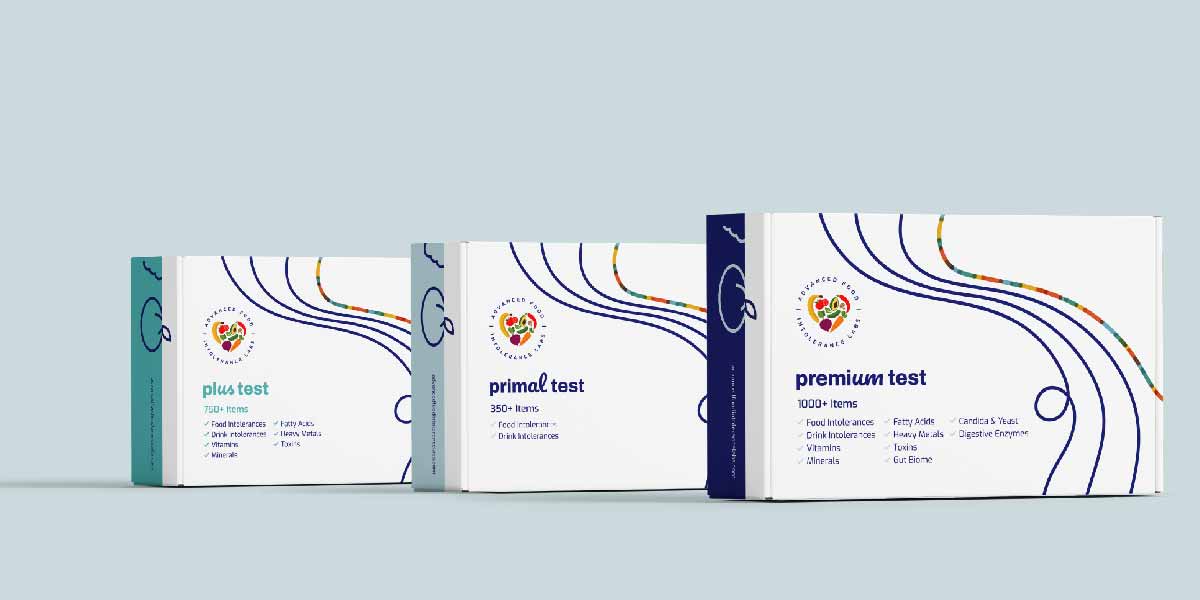Table of Contents
Digestive health is the cornerstone of well-being, influencing everything from immunity to mental health. Amidst this complex system, probiotics emerge as powerful allies, offering a range of benefits that extend far beyond the confines of our digestive tract. Traditionally sourced from dairy products and fermented foods, probiotics have long been celebrated for their ability to balance the gut microbiome. However, a new player has entered the field, offering a unique twist on gut health: green probiotics.

Green probiotics, derived from photosynthetic microorganisms such as spirulina and chlorella, are a groundbreaking advancement in nutritional science. Unlike their traditional counterparts, these plant-based wonders bring a dual offering to the table: the well-known benefits of probiotics combined with the nutritional powerhouse of green superfoods. Rich in vitamins, minerals, and antioxidants, green probiotics not only support the digestive system but also contribute to overall health in ways that are only beginning to be understood.
Probiotics not only aid in digestion but also bolster the body's defenses, detoxify harmful substances, and even elevate mood. The journey through the benefits of green probiotics for digestive health is a testament to the intricate connections within our body and the potential of natural substances to foster well-being.
Understanding Green Probiotics
In the realm of gut health, probiotics have emerged as powerful allies. Traditionally, when we talk about probiotics, we refer to the beneficial bacteria that colonize our digestive tract, aiding in everything from digestion to immune function. However, a fascinating subclass of these microorganisms, known as "green probiotics," is gaining attention for their unique benefits and sources. Green probiotics are derived from photosynthetic microorganisms such as spirulina and chlorella, and they offer a blend of benefits that extend beyond those of their more traditional counterparts.
Green probiotics are primarily sourced from algae and cyanobacteria, both of which are capable of photosynthesis. Unlike traditional probiotics, which include species like Lactobacillus and Bifidobacterium, green probiotics are microscopic plants. The most well-known sources are spirulina and chlorella—two types of algae renowned for their health benefits. These microorganisms thrive in water and are harvested for their nutritional content, which is then converted into supplements.
Green vs. Traditional Probiotics
The distinction between green and traditional probiotics lies not just in their origin but also in their composition and benefits. Traditional probiotics are celebrated for their ability to improve gut health by balancing the gut microbiome. They do this by introducing beneficial bacteria into the digestive system. Green probiotics, on the other hand, offer a broader spectrum of nutrients. They are rich in vitamins (such as vitamin B12), minerals (including iron and magnesium), antioxidants, and protein. This rich nutritional profile contributes to the wide array of health benefits they offer, which extend beyond gut health.
Nutritional Content of Green Probiotics

Green probiotics stand out for their exceptional nutritional content. Spirulina, for example, contains between 55% and 70% protein by weight, a high concentration of beta-carotene, various B vitamins, minerals, and essential fatty acids. Chlorella is another powerhouse, packed with a high amount of chlorophyll, which is known for its detoxifying properties. Both of these green probiotics also contain antioxidants that protect the body from oxidative stress and reduce inflammation.
The inclusion of these photosynthetic microorganisms in one's diet can lead to improved gut health, enhanced immune function, and a reduced risk of chronic diseases. Their rich nutritional makeup supports the body's various biological functions, making green probiotics a noteworthy addition to a health-conscious lifestyle.
The Role of Green Probiotics in Digestive Health
The human digestive system is a complex and delicate ecosystem, influenced by various factors including diet, lifestyle, and the microorganisms that reside within it. Among these microorganisms, probiotics play a vital role in maintaining digestive health by supporting a balanced gut microbiome.
Green probiotics, derived from photosynthetic microorganisms such as spirulina and chlorella, offer unique benefits that extend beyond those of traditional probiotics. This section delves into the mechanisms through which green probiotics contribute to digestive wellness and how they can address common gastrointestinal issues.
Enhancing Gut Microbiota Balance
Green probiotics are rich in nutrients and bioactive compounds that nurture the gut's microbiota. These microorganisms introduce beneficial bacteria into the gut, promoting a healthy balance between the various species that inhabit the gastrointestinal tract. A balanced gut microbiota is crucial for optimal digestion, nutrient absorption, and immune system function. By reinforcing the population of good bacteria, green probiotics help to suppress the growth of harmful bacteria, reducing the risk of infections and inflammation that can lead to digestive discomfort and disorders.
Alleviating Common Digestive Issues
One of the most appreciated benefits of green probiotics is their ability to alleviate common digestive issues. For people suffering from bloating, constipation, or diarrhea, incorporating green probiotics into the diet can offer significant relief. These microorganisms aid in the breakdown and absorption of nutrients, facilitating smoother digestion and regular bowel movements. Moreover, the anti-inflammatory properties of green probiotics can soothe the digestive tract, reducing bloating and discomfort associated with gas.
Supporting Nutrient Absorption

Beyond their probiotic content, green microalgae like spirulina and chlorella are nutrient powerhouses, packed with vitamins, minerals, and enzymes that enhance the body's ability to absorb nutrients. This is particularly beneficial for digestive health, as improved nutrient absorption ensures that the body receives the essential compounds needed for energy production, cellular repair, and overall wellbeing. The presence of chlorophyll in green probiotics also plays a role in detoxifying the gut, further facilitating the efficient absorption of nutrients.
Modulating the Immune Response
The digestive system is intricately linked to the body's immune system, with a significant portion of immune cells residing in the gut. Green probiotics contribute to the modulation of the immune response, enhancing the gut's barrier function and protecting against pathogens that could disrupt digestive health. This immune support is vital for preventing and managing autoimmune and inflammatory conditions that can affect the gut, such as inflammatory bowel disease (IBD).
Additional Health Benefits of Green Probiotics
While the primary focus on green probiotics often revolves around their positive impact on digestive health, these powerful microorganisms offer a spectrum of additional benefits that extend far beyond the gut. Green probiotics, derived from photosynthetic bacteria and algae like spirulina and chlorella, bring a host of nutritional and health advantages that can play a crucial role in overall wellbeing.
Immune System Support and Enhancement
One of the most significant benefits of green probiotics is their ability to bolster the immune system. These microorganisms are rich in nutrients that are essential for robust immune function, including vitamins A, C, and E, as well as minerals like zinc and selenium. Spirulina, for example, has been shown to enhance the production of antibodies and infection-fighting cells, helping the body ward off infections and diseases more effectively. This immune-boosting effect is particularly beneficial during seasonal changes when the body is more susceptible to pathogens.
Detoxification Properties

Green probiotics also possess potent detoxification properties. They can bind to heavy metals and other toxins present in the body, facilitating their removal. This detoxification process is crucial for maintaining liver health and preventing the accumulation of harmful substances that can lead to chronic diseases. Chlorella, in particular, has been highlighted for its ability to bind with heavy metals and support their elimination from the body, offering a natural way to cleanse and protect vital organs.
Contribution to Overall Wellbeing
The benefits of green probiotics extend to various aspects of mental and emotional health. The gut-brain axis, a complex communication network linking the digestive system with the brain, plays a key role in mental health. By promoting a healthy gut microbiome, green probiotics can positively influence mood, stress levels, and cognitive function. Furthermore, the rich nutritional profile of these microorganisms supports energy levels and can reduce fatigue, contributing to a sense of vitality and well-being.
Nutritional support is another critical aspect. Green probiotics are packed with protein, essential fatty acids, and antioxidants, which support the body's nutritional needs and combat oxidative stress. This nutritional boost can have visible effects on skin health, promoting a clear, glowing complexion, and supporting the body's natural healing processes.
Incorporating Green Probiotics into Your Diet
Incorporating green probiotics into your diet is a straightforward and effective way to boost your digestive health and overall wellbeing. Unlike traditional probiotics, green probiotics are derived from photosynthetic microorganisms like spirulina and chlorella, offering a unique blend of nutrients alongside their beneficial bacteria. Here’s how you can seamlessly add them to your daily routine:
Recommendations for Daily Intake and Sources

The recommended daily intake of green probiotics can vary based on the specific product and your individual health needs. Generally, a dose of 1 to 3 grams of spirulina or chlorella powder is considered safe and effective for most adults. These green probiotics are available in various forms, including powders, tablets, and capsules, making them versatile for dietary inclusion. Natural sources include the direct consumption of spirulina or chlorella as a supplement or integrated into foods.
Tips for Choosing High-Quality Green Probiotic Supplements
- Look for Purity: Choose supplements that are free from contaminants and additives. High-quality green probiotics are often labeled as "pure" or "organic," indicating they have been grown in controlled environments without the use of synthetic fertilizers or pesticides.
- Consider the Source: Pay attention to the source of the algae. Products that specify the cultivation environment (e.g., freshwater vs. marine) can provide insight into the nutritional content and potential contaminant exposure.
- Check for Certifications: Look for products that have been certified by reputable third-party organizations. Certifications can confirm the supplement's quality, potency, and safety.
Creative Ways to Include Green Probiotics in Meals and Snacks
- Smoothies: Add a spoonful of spirulina or chlorella powder to your morning smoothie. Its vibrant green color and mild taste blend well with fruits like bananas, mangoes, and pineapples, as well as leafy greens.
- Salads: Sprinkle powdered spirulina or chlorella over your salads for a nutritional boost. Their earthy flavor complements salad dressings well, especially those with lemon or vinaigrette bases.
- Soups and Stews: Mix green probiotics into soups and stews. They can easily be stirred into broths or creamy soups without altering the texture significantly.
- Energy Bars and Snacks: Incorporate green probiotic powders into homemade energy bars, balls, or bites. Combined with nuts, seeds, and dried fruits, they make for a nutritious snack.
- Beverages: Beyond smoothies, you can add green probiotic powders to juices, teas, or even plain water. For a refreshing twist, try blending them with mint leaves, cucumber, and a dash of lemon.
Frequently Asked Questions
What are green probiotics?
Green probiotics refer to probiotics derived from photosynthetic microorganisms, such as spirulina and chlorella. Unlike traditional probiotics that come from dairy or fermented foods, green probiotics are sourced from algae and offer a unique blend of nutrients, including vitamins, minerals, and antioxidants.
How do green probiotics benefit digestive health?

Green probiotics support digestive health by promoting a balanced gut microbiota. They can help alleviate common digestive issues such as bloating, constipation, and diarrhea. Additionally, their rich nutrient content supports the overall function of the digestive system.
Can green probiotics help with immunity?
Yes, green probiotics can boost the immune system. The nutrients found in spirulina and chlorella, such as vitamins C and E, as well as beta-carotene, have been shown to enhance immune response. The probiotics themselves also interact with gut immune cells, helping to maintain immune health.
Are there any side effects of taking green probiotics?
Green probiotics are generally safe for most people, but some individuals may experience side effects, especially when starting them for the first time. These can include digestive discomfort, such as gas or bloating. It's also important to source high-quality supplements to avoid contamination with harmful substances.
How can I incorporate green probiotics into my diet?
Green probiotics can be incorporated into the diet in various ways. They are available in supplement form, such as tablets or powders, which can be easily added to smoothies, juices, or water. Spirulina and chlorella can also be found in some health foods and snacks. It's important to start with a small dose and gradually increase it to allow your body to adjust.
Conclusion
In conclusion, probiotics offer a unique and potent avenue for enhancing our gut microbiome, bolstering digestive efficiency, and beyond. The journey through understanding what green probiotics are, their distinct advantages over traditional probiotics, their profound impact on our digestive systems, and the myriad ways they can be integrated into our diets, illuminates a path toward not just better digestive health, but a more vibrant, holistic state of well-being.
Green probiotics, sourced from the likes of spirulina and chlorella, are not just a supplement; they are a testament to the power of nature's design and its untapped potential in contributing to human health. By fostering a balanced gut microbiota, supporting the immune system, and offering detoxifying properties, green probiotics extend their benefits far beyond the digestive tract, touching aspects of our health we may not have attributed to our gut.
Incorporating probiotics into our diets emerges not as a mere suggestion but as a compelling consideration for anyone looking to optimize their health. Whether through supplements or incorporating these microalgae into meals, the versatility and accessibility of green probiotics mean that improved digestive health and overall well-being are within reach for those willing to make this green leap.



